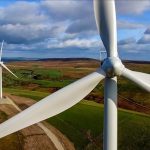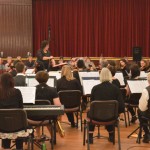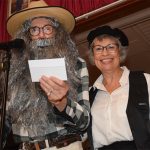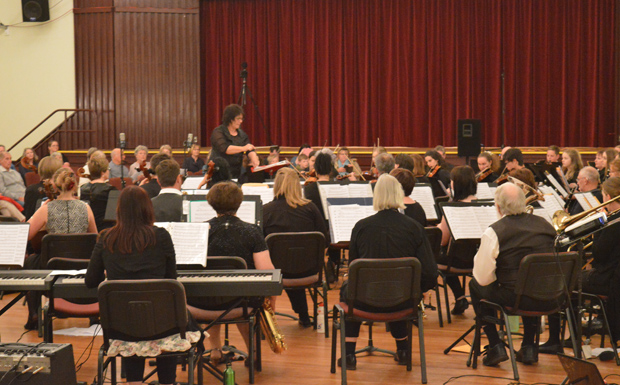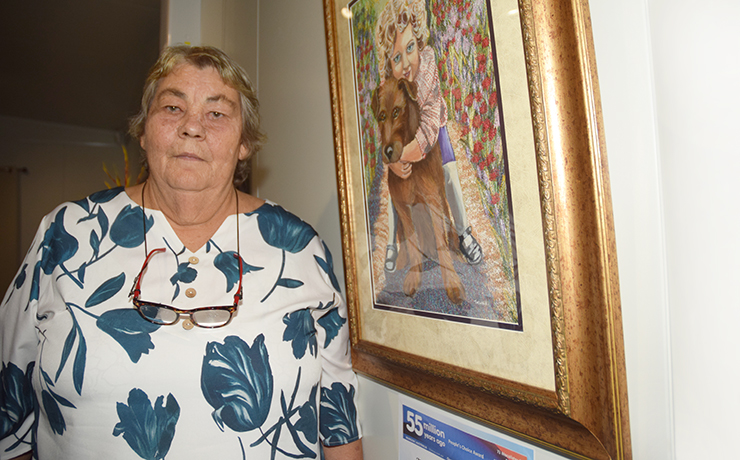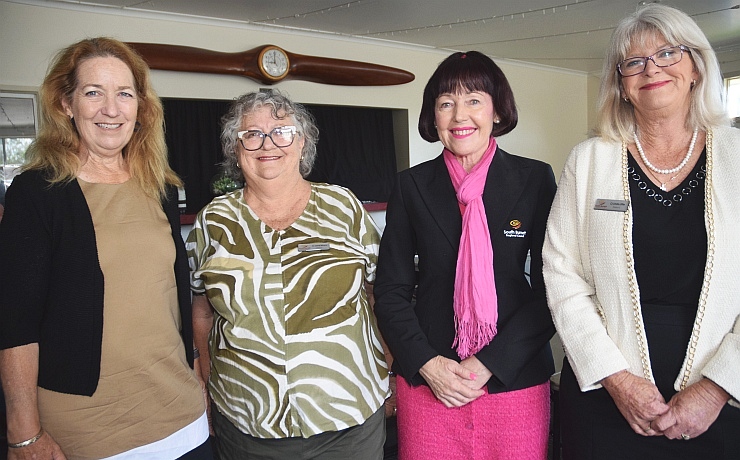
November 22, 2024
South Burnett Mayor Kathy Duff and three fellow councillors – Cr Deb Dennien, Cr Jane Erkens and Cr Linda Little – were among 10 witnesses called to give evidence at the recent House Select Committee inquiry into nuclear energy held in Nanango.
Five Federal MPs were present at the hearing: chair Dan Repacholi (ALP, Hunter), deputy chair Ted O’Brien (LNP, Fairfax), Matt Burnell (ALP, Spence), Darren Chester (The Nationals, Gippsland) and Graham Perrett (ALP, Moreton) plus Simon Kennedy (Liberal, Cook) via telephone.
The inquiry was established by the Federal Government on October 10 and must report back to Parliament by April 30 next year (see the “Terms Of Reference”, below).
The other witnesses at the Nanango hearing, which was held in a meeting room at the Nanango Services Club, were:
- Jim Willmott – Property Rights Australia
- Katy McCallum – Kilkivan Action Group
- Aunty Jannine Sandra Smith and her daughter Peta May – Bujiebara traditional owners
- Nick Holliday – Bullcamp farmer
- Suzanne Mungall – South Burnett Sustainable Future Network
The witness’ statements concentrated on the Coalition proposal to build a nuclear power generating facility at Tarong, one of seven sites around Australia suggested by Opposition Leader Peter Dutton and National Party Leader David Littleproud.
* * *
The full witness statements can be read on Hansard (see link below) but here are some of the key issues:
Mayor Kathy Duff: She said the South Burnett Regional Council was keen to look at all options including nuclear. It was concerned about the rollout of renewables which had been causing divisions in the community, particularly around the lack of planning. Mayor Duff described renewable projects as “heavy industrial facilities” in the midst of prime agricultural land and said their construction was damaging Council roads. Council was also concerned about the loss of 700 jobs, including 400 indirect jobs, when Tarong closes. “There has been a lot of scaremongering with nuclear, with people referring to what happened years and years ago. But we just celebrated the Olympic Games in France, with Australians going across to them, and no one felt unsafe. There’s nuclear in all parts of the world, even here in Australia, so the scaremongering about nuclear needs to be unpacked.”
Mayor Duff said an “overwhelming number of people, surprisingly, are keen on nuclear” although she also knew people who were pro-renewables. She said no one from the ALP had spoken to Council about renewables but Mr Littleproud had spoken to councillors after the Coalition’s nuclear announcement. “He has certainly committed to our community having a real say in if and, if so, when it would come; and that, with the whole process, there would be lots of advantages for us, and packages for our region would be looked at, economically. More or less, it was just, ‘Put together a wish list of the things that you want for your region because, if you get to have a nuclear site, we’re going to be making sure that your community benefits wholeheartedly from that’.”
Cr Linda Little: She was concerned about the impact of nuclear on the environment plus the division the Coalition proposal was causing in the community, with the debate on social media getting “nasty”. She was also concerned the Coalition would use the Federal Election result, if successful, to press ahead with nuclear power despite any State or local opposition. “So we don’t have a voice and we don’t get a choice and, if the LNP do get in at the next election, that’s it; it’s just going to be nuclear. I think we need far more community consultation and people need to be listened to.”
Cr Deb Dennien: She was concerned about the large footprint of renewables and supported exploring more energy options. She was also concerned about sand extraction from local creeks being used in wind farm construction and the loss of koala habitat. “We need to look at all of the options and have honest conversations with facts, and not with social media … If we can have a really good factual discussion about where things are, looking at what happens overseas and at countries that are further ahead with nuclear technology than we are, I think we can learn a lot.”
Cr Jane Erkens: She was amused that people used to be worried about living near a coal mine, but now coal was “the best thing out”. On nuclear, she said she would be led by the opinions of the community. “We really need to have it explained better to our community, because people are looking things up, and it depends on where you look … our community, as well as ourselves, need to be educated on what nuclear involves and what the risks are. One thing that a lot of people have spoken to me about is nuclear waste. They want to know how much waste there will be and where it will go. I don’t think we can discuss with our community whether it’s a good thing or a bad thing unless we have those facts.”
Jim Willmott: He was totally opposed to the policy of 100 per cent renewables backed up by storage and gas. He said people were being “steam rolled” and there was no social licence in the South Burnett region for “wind or solar factories, transmission towers, battery energy storage systems or pumped hydro projects”. “These projects have been imposed without broad community consent.” He said a Property Rights Australia survey had found “95 per cent not thinking that the government had listened to their concerns … regarding the rollout of renewables” and 76 per cent had said “they were bullied or intimidated by renewable developers trying to access their land”. He said one person living near the Kingaroy Solar Farm had been trying for nine months to sell their property.
Katy McCallum: She didn’t just represent the Kilkivan Action Group but “also the voices of thousands of people throughout the Gympie region who can’t be here today, as well as all the voices of the flora and fauna that live throughout this region who do not have a voice to stand up for themselves”. She said critically endangered species would be “wiped out” by the Borumba Dam pumped hydro project.
Nick Holliday: This was first time, as far as he could tell, that anyone from “the machinery of government has asked anyone in the South Burnett Region about the nuclear proposal”. He had concerns about the impact of nuclear on agriculture, his farm, on water use, property values, the local economy and infrastructure. He said his farm would be in “an ingestion pathway” zone around a Tarong nuclear plant. “That is a zoned area that is at risk of nuclear leaks, nuclear contamination. Those risks might be minor, or they might be significant.”
Aunty Jannine Smith and Peta May: They opposed any “nuclear solution” for Australia and, in particular, in areas of cultural significance to the Bujiebara people, including the Meandu Mine which was a documented site for axe-grinding grooves, Coomba Falls and the Bunya Mountains. Ms May said the use of water resources required for nuclear also needed to be challenged, particularly in the South Burnett where there was a shortage of potable water, eg in Kumbia. Aunty Jannine said she was “against any nuclear reactor on Australian shores. I am against the mining of yellowcake. I am against the export of yellowcake. I am against the import of anything nuclear. I am against nuclear submarines. I am against nuclear waste”.
Suzanne Mungall: She said the South Burnett Sustainable Future Network was not affiliated with a political group. “We feel that nuclear does not fit with our aims. Our aims are to bring forward some more climate action, to work to improve our biodiversity and also to reduce pollution”. She said the loss of jobs was a major concern but to assume “that someone can stop working in 2036 and then pick up the tools again five years later in a new industry is erroneous”.
* * *
Terms Of Reference
The role of the House Select Committee on Nuclear Energy is to inquire into and report on the consideration of nuclear power generation, including deployment of small modular reactors, in Australia, including:
- Deployment timeframes;
- Fuel supply, and transport of fuel;
- Uranium enrichment capability;
- Waste management, transport and storage;
- Water use and impacts on other water uses;
- Relevant energy infrastructure capability, including brownfield sites and transmission lines;
- Federal, State, Territory and local government legal and policy frameworks;
- Risk management for natural disasters or any other safety concerns;
- Potential share of total energy system mix;
- Necessary land acquisition;
- Costs of deploying, operating and maintaining nuclear power stations;
- The impact of the deployment, operation and maintenance of nuclear power stations on electricity affordability; and
- Any other relevant matter.
External links:
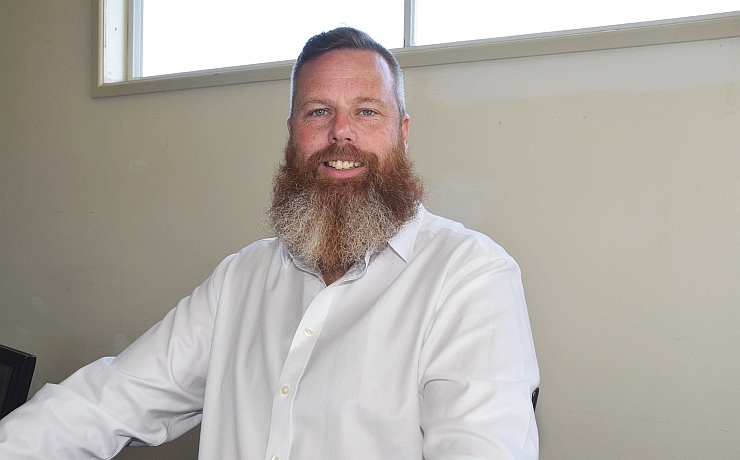
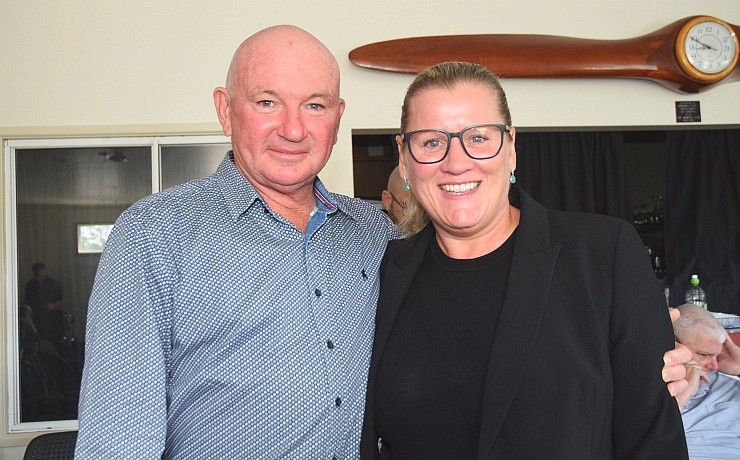
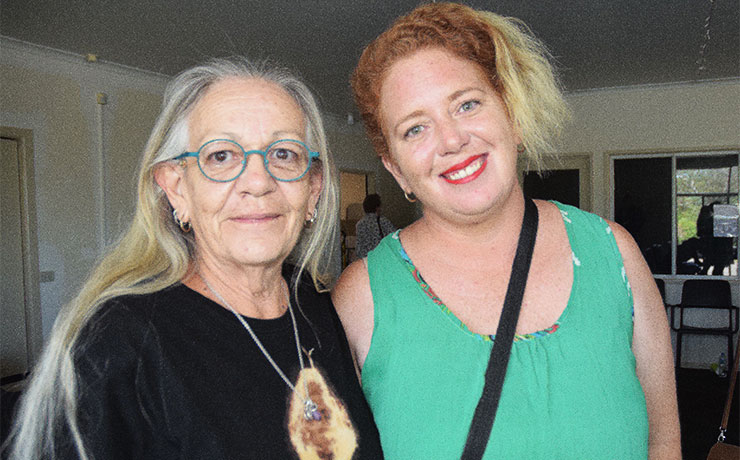
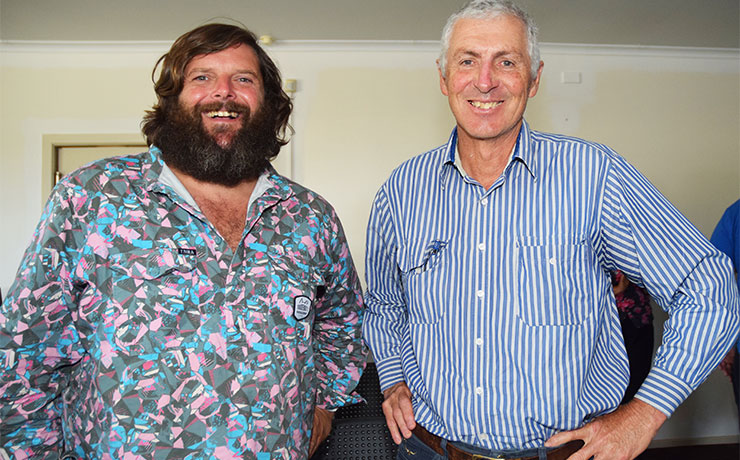
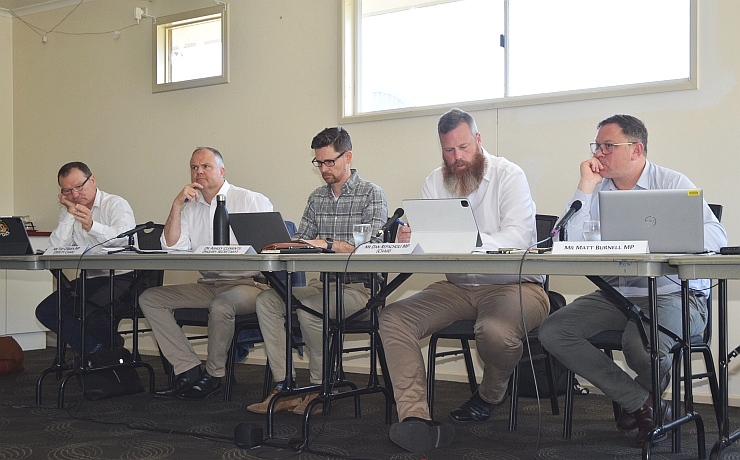
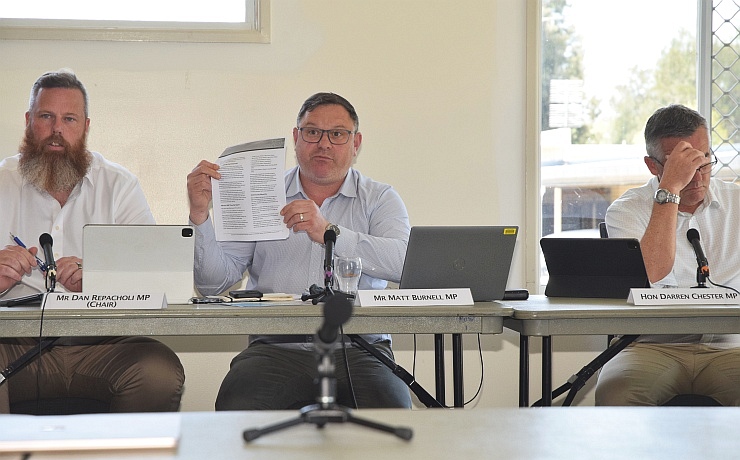
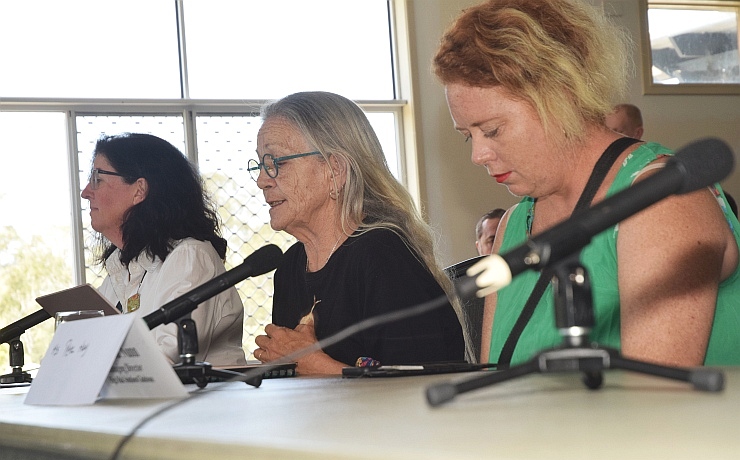
Related articles:
- Nuclear Committee To Visit Nanango
- Councils Back Nuclear, Gas
- MP ‘Very Confident’ About Nuclear
- Nuclear Costs ‘In Due Course’
- ‘Social Licence’ Needed For Nuclear
- Academy Can’t Rule Out SMRs
- Water Claim Labelled ‘Hypocrisy’
- Towns ‘Already Back Nuclear’
- Mayor To Consult Community
- ‘Biggest Investment’ In South Burnett
- Nuclear ‘Would Tick Some Boxes’
- No Plans For Nuclear: LNP
- Boyce Welcomes Nuke Plan
- Reaction To Nuclear Plan
- ACTU Launches Campaign
- Tarong Named As Nuclear Site
- MP Labels Powerlines Claim ‘Myth’
- Nuclear? Wait A Bit Longer: MP
- Nuclear Too Expensive: CSIRO
- Nuclear Sites Still Under Wraps
- Nuclear? No Worries, Says MP
- MP Supports Local Nuke Discussion
- Rally Against ‘Reckless Renewables’
- MP Calls For Renewables ‘Pause’
- Nats Target ‘Reckless Renewables’
- Replace Coal With Nuclear: MP









